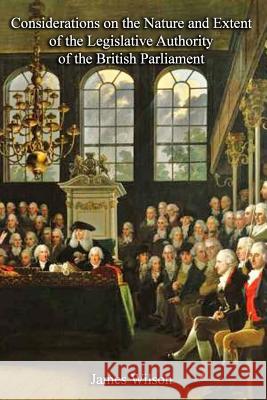Considerations on the Nature and Extent of the Legislative Authority of the British Parliament » książka
Considerations on the Nature and Extent of the Legislative Authority of the British Parliament
ISBN-13: 9781500416638 / Angielski / Miękka / 2014 / 38 str.
The legal case for the American Revolution has seldom been presented as eloquently and as decisively as it was presented by James Wilson in 1774. Wilson was one of only six men to have signed both the Declaration of Independence and the Constitution, and he was one of our nation's first Supreme Court justices. In presenting his case for a revolution, Wilson argued that the American colonists had never been subject to the dictates of the British Parliament. The core of Wilson's argument revolves around three landmark cases in the British court. The first case was one from 1485 in which the British court ruled that the people of Ireland were not subject to the laws of the British legislature "because they do not send knights to parliament." The second case was a dispute heard in 1694 regarding the question of whether the people of Jamaica were bound by the laws of Parliament, and once again, the British court ruled "That the acts of parliament or statutes of England were not in force in Jamaica." Wilson then made reference to a third case in which the court held "that the laws of England did not extend to Virginia." Armed with these three decisions, James Wilson completely obliterated the arguments of his opponents, and established the right of the American colonies to live according to their own laws.
Zawartość książki może nie spełniać oczekiwań – reklamacje nie obejmują treści, która mogła nie być redakcyjnie ani merytorycznie opracowana.











